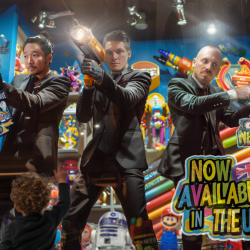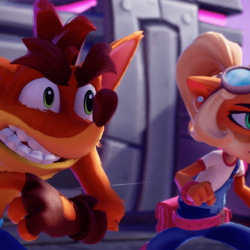It’s easy to feel hopeless at the moment.
Whether it’s international or national news, it’s a bit of a misery fest out there.
Now, we all know the way the news works (“if it bleeds, it leads”) and we kind of know that it’s not as hopeless as it all seems, but sometimes it can feel like it.
From a commercial standpoint, for agencies and clients alike, it’s easy to slide into a gloom about the future — from inflation to tech layoffs — and think that hope is just pointless naïve optimism.
We humans have six primary emotions, with five of them being negative — so we’re a bit hardwired to be pessimistic too (it was useful in cavemen times to err on the side of caution!)
But I’m here to tell you all that hope is vital. Hope is necessary. Hope is the thing that will make us all not just happy, but commercially successful in 2023 and beyond.
Firstly, positivity is a self-fulfilling prophecy
The power of positive thinking is not just a trite myth, it is scientifically validated. In everything from exams results to cancer recovery, countless recent studies have shown that those who think they will have a positive outcome are more likely to achieve one.
Research published in August 2022 by Harvard University even showed that people who have a positive attitude about getting older live longer. Think about that for a second, positive thinking won’t just save your life — it will prolong it, too!
And the harder it gets out there, the more vital it is for us all to think positively, and to have hope that things will turn out for the best. Multiple studies have shown that having something to look forward to can reduce stress and boost mood. Anticipating something positive happening boosts dopamine levels as much as actually experiencing it. Of course, positivity bias can be a bad thing, but positivity itself can never be. Naïve over-optimism with no justification can potentially lead to disaster, but scientists will tell you that embracing every scenario with optimism won’t or can’t be.
I watched a little clip of the comedian Bill Burr talking about this recently where he summed it up better than I’ve heard any planner or academic:
“You’re going to be fine. And even if you’re not going to be fine, isn’t it better to exist thinking you’re going to be fine? Until it’s not fine. Then deal with it then. No sense in ruining right now.”
So, what does this mean for us in marketing? Where does embracing hope over fear get us?
To better ideas. To breakthrough thinking. To bigger results. To stages, not cubicles.
Imagine when someone shows you an idea that scares you a bit that you embrace it and go with the slightly ‘braver’ thinking or execution. Just imagine where it could take you if you approach everything with ‘yes’ in mind. Think of it as a Hope filter.
Whether it’s a media plan, or a packaging design, or a distribution strategy, or a potential influencer – rather than thinking things might not work out (so therefore playing it safe) just imagine where you might be if you just stuck everything through the Hope filter?
Not blind optimism. But not blind pessimism either. The bad scenario is no more likely than the amazing scenario. So why not embrace the latter. We know it’ll make you happier and live longer for starters!
Psychiatrists and therapists aplenty will tell you that catastrophising or obsessing over the nightmare scenario is as irrational as it is unhealthy. So, let’s replace it with something else. Let’s bathe in a pool of positivity, let’s make 2023 the year of hope.
Too many people simply mislabel cowardice, anxiety or pessimism as vigilance and rigour. Most of the time it’s just a lack of ambition.
And those who are successful, famous, lauded and (yes) wealthy, at one stage took a leap.
They had hope that things could be better.
And look where it got them.
Hope is not a dirty word.
Hope will save us all. And probably make us a few quid into the bargain.
Featured image: Superette / Capturenow



























